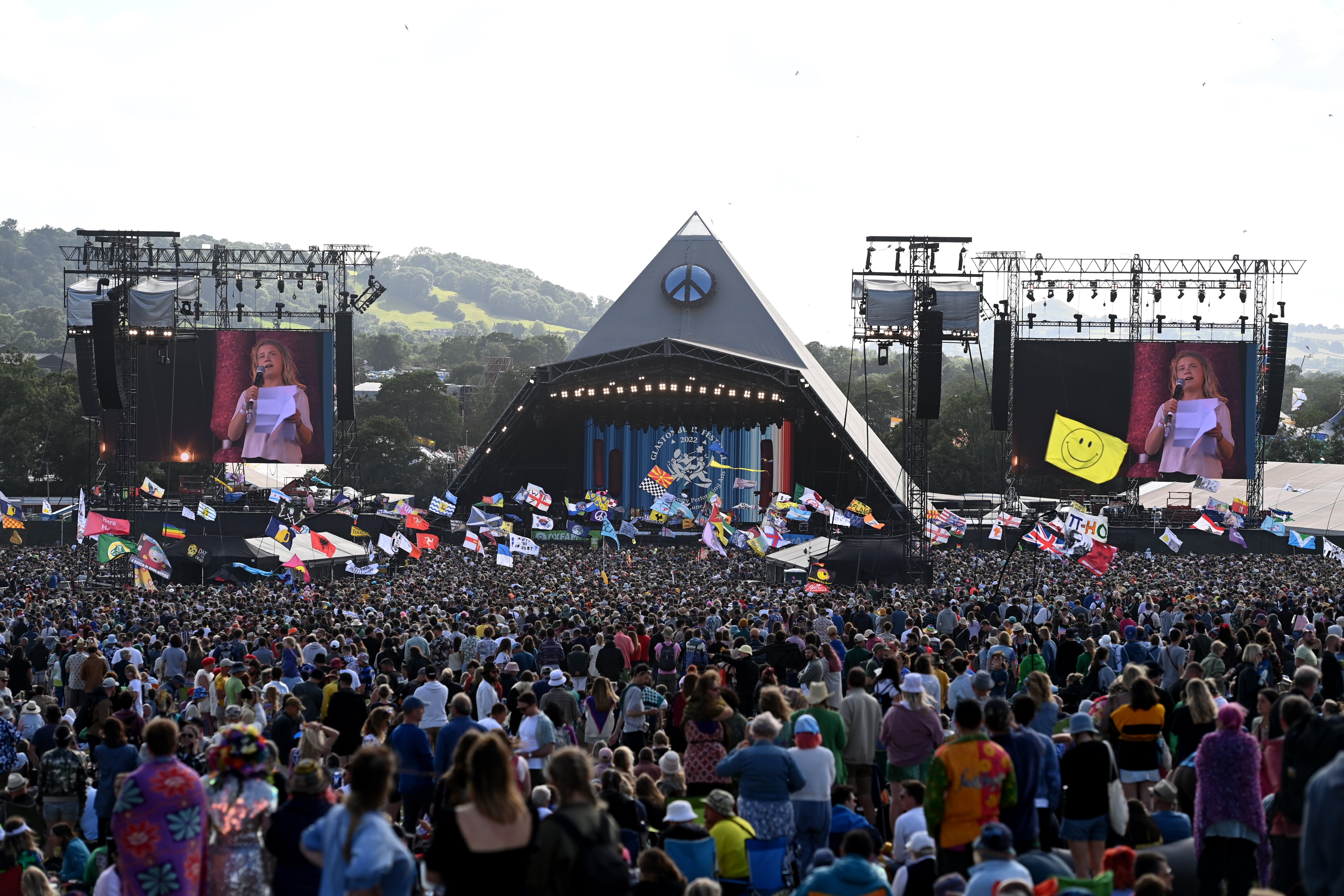What can Glastonbury 2022 teach us about our post-Covid world?
The festival reminds us that although increasing wealth and protecting the environment might be in conflict in the short run, in the longer term they are aligned, writes Hamish McRae


Glastonbury’s triumphant revival tells us a huge amount about the post-pandemic world economy – what is really pretty much the same, and what can we learn from this.
No, I have not been there but a team of colleagues, far better qualified than I, can tell you all about it. The overriding story, though, is that people have to get together. It’s the magic of the real thing.
Paul McCartney’s headline performance with his string of surprise guests, including Bruce Springsteen, showed the world that an 80-year-old can speak across generations. The 20-year-old Billie Eilish and, in a different way, the 19-year-old Greta Thunberg showed how the young can teach the rest of us important truths about human relations and the environment. And the rest of the music was the music of humanity – music that reaches into the souls of us all.
But stand back a moment. Writing as an economist, where are the messages, the signals about what has changed in the three years since the last Glastonbury, and what has not?
Let’s start with the obvious. Physical presence matters. It is not simply seeing that the icons of the music world are real people. Technology is not a complete substitute. It is the shared experience. Of course, technology can do amazing things, and it will be fascinating to see whether the alternative approach, the revival of Abba by holograms in their new stadium in London, really works for the audience. Our reviewer gave it four stars, but the audience will be the judge. But there is something about the personal performance, the elements of surprise and serendipity, that make Glastonbury so special.
Next, age and youth can get along. William Shakespeare’s poem on the tension between young and old starts: “Crabbed age and youth cannot live together; Youth is full of pleasure, age is full of care…” And it ends: “Age I do defy thee: O sweet shepherd, hie thee, For methinks thou stayest too long.”
But, as we saw, that can be wrong. Older performers provided audiences with full pleasure, while it was Greta Thunberg who so effectively gave voice to the cares of the young. And as for the final line that urges the elderly to die off – well, I don’t see too much of that sentiment in modern Britain.
This is important. The age structure of Europe is much older than in Elizabethan England, when the average life expectancy even for the well-off was in the middle 50s, and for the population as a whole, much lower. So now, the more that older people can contribute to the economy in positive ways, the less the burden on the young.
We older folk can’t all be Sir Paul McCartney or Bruce Springsteen, who is 72, but it is right that we should do what we can, otherwise young working people might indeed think we are staying around too long. The forthcoming increase in the UK state pension, probably around 10 per cent, is bound to cause resentment among the families who have pay more taxes to fund it.
Next, there is a crucial link between economics and social issues. The challenge of climate change will not go away. So the use of Glastonbury by Greta Thunberg to promote her forthcoming book, which pulls together a wealth of research on the subject, emphasises that link between what makes economic sense and how our species can best protect all our futures. We have nowhere else to go.
To keep up to speed with all the latest opinions and comment, sign up to our free weekly Voices Dispatches newsletter by clicking here
Glastonbury reminds us that although increasing wealth and protecting the environment might be in conflict in the short run, in the longer term they are aligned.
What has changed over these past tough three years? Maybe one thing is that we have learned to value a bit more the things we have not been able to do so much during the pandemic years – such as the freedom to travel. More generally, we seem to value human interaction more, be it in a group event or in quiet conversations with friends. We have learned new ways of working, not simply in terms of working from home, but also in doing things more efficiently and effectively.
This is really important. Glastonbury has defined what is so special about live performance. That is bedrock. Knowing this leaves us clear to figure out ways to get things done when real-life meetings cannot take place for practical reasons. Sometimes it is better to go into a shop and buy something, rather than get the wrong item online and have to send it back. Sometimes you should have a chat in person in the office, rather than jumping on a Zoom call. But often, the reverse is true. And figuring that out is one of the big tasks ahead for all of us.
Join our commenting forum
Join thought-provoking conversations, follow other Independent readers and see their replies
Comments
Bookmark popover
Removed from bookmarks